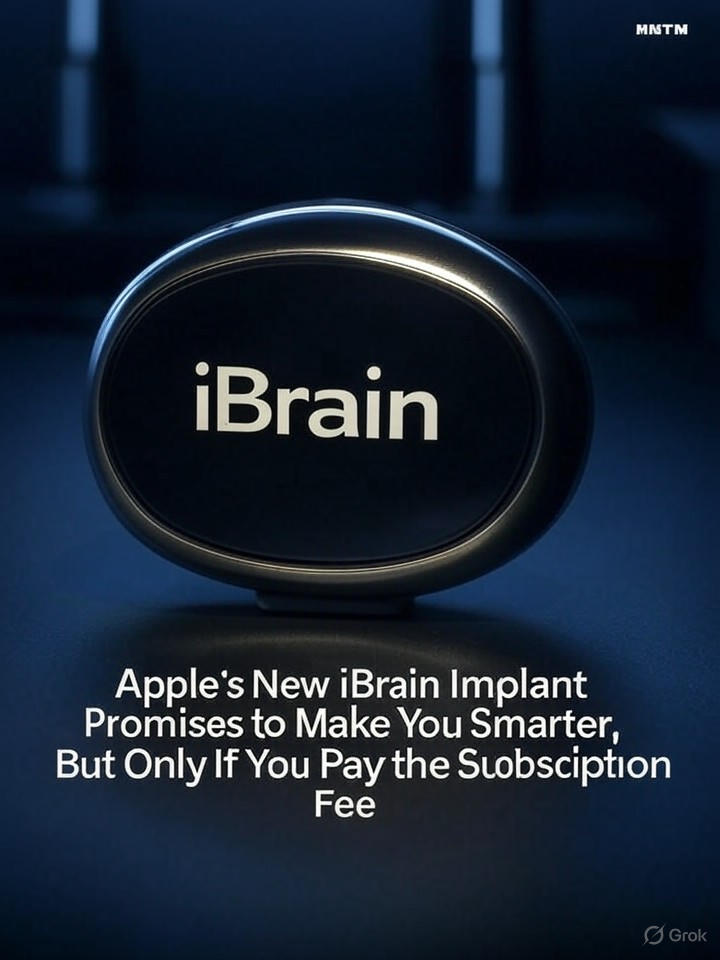CUPERTINO, CA - In a move that's equal parts groundbreaking and wallet-draining, Apple has unveiled the iBrain, a revolutionary neural implant designed to supercharge your intellect. During the keynote, CEO Tim Cook, looking smugger than ever, demonstrated how the device could turn an average Joe into a temporary Einstein, provided they keep up with those monthly payments. 'Innovation isn't free,' Cook quipped, as the audience applauded while silently calculating their credit card limits.
The iBrain works by interfacing directly with your gray matter, downloading 'intelligence packs' that enhance cognitive functions like memory, problem-solving, and even sarcasm detection. Early testers reported solving complex puzzles in seconds, but only during the trial period. Once the subscription lapses, users described a sudden fog descending, turning their boosted brains back into the mush they started with. It's like renting a Ferrari for your mind, but if you miss a payment, it turns into a rusty bicycle.
Of course, the real genius here is Apple's business model. For just $9.99 a month, you get basic smarts – enough to impress at parties or finally understand your taxes. Upgrade to the premium tier at $19.99, and unlock genius-level features like quantum physics comprehension or the ability to argue politics without sounding like a total idiot. But beware: hidden fees for 'neural updates' could add up, and don't even think about canceling – users report withdrawal symptoms including temporary idiocy and an inexplicable urge to buy more Apple products.
Tech critics are divided. Some hail it as the future of human evolution, while others worry it's just another way for Big Tech to monetize our very thoughts. 'What happens when Apple decides to patch in ads directly into your dreams?' pondered one skeptic. Meanwhile, competitors like Google are scrambling to release their own brain chips, rumored to come with free tracking of your every neuron firing – because privacy is so last century.
Early adopters are already lining up, with one fan gushing, 'I used to forget where I put my keys, but now I can recite pi to 100 digits... as long as my auto-pay is set up.' However, not everyone's thrilled. A group of philosophers has protested, arguing that true intelligence can't be subscribed to like Netflix. 'This cheapens the human experience,' said one, before admitting he was considering the free trial anyway.
Potential side effects include overconfidence, leading to ill-advised decisions like challenging chess grandmasters or trying to fix your own plumbing. Apple assures users that these are rare, and anyway, there's an app for that – available for an extra $4.99. The company also promises seamless integration with other devices, so your iBrain can sync with your iPhone to remind you that you're not as smart as you think without the implant.
In the end, the iBrain might just redefine intelligence in the 21st century: not by how much you know, but by how much you're willing to pay to pretend you do. As Apple marches toward a future where even your thoughts are on a payment plan, one thing's for sure – natural smarts are out, and subscription-based brilliance is in. Just don't forget to renew, or you might wake up dumber than a sack of hammers.

